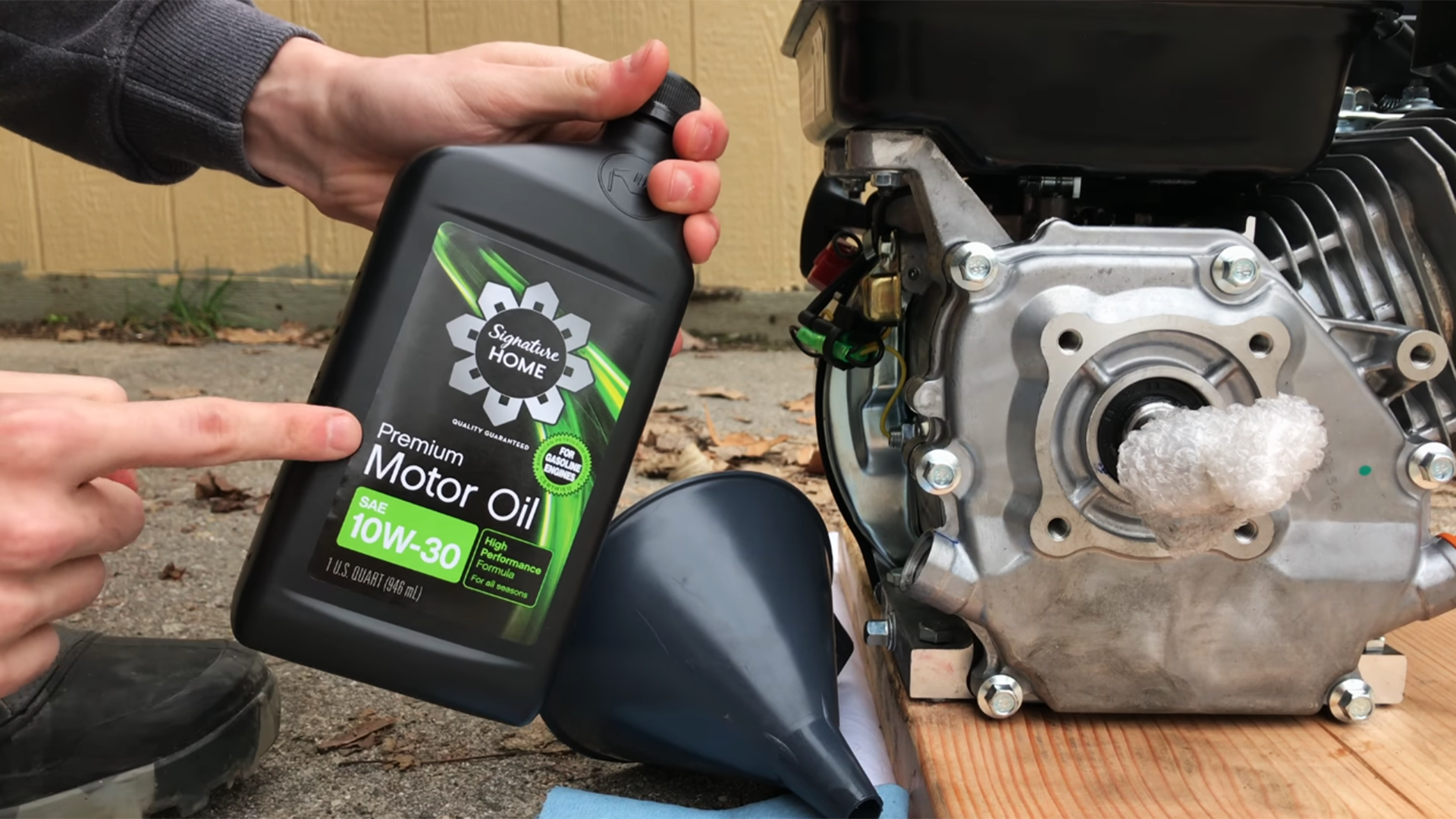

We may earn revenue from the products available on this page and participate in affiliate programs. Learn more ›
Oil is to cars as blood is to people—neither will run very long without it. Oil flows all throughout the engine and various components, lubricating all those moving parts and keeping everything from getting too hot. But for every driver out there who only uses top-shelf stuff and changes it out every 3,000 miles on the dot, there’s another who considers it optional and goes tens of thousands of miles without even thinking of the word “oil.” If you know anyone in the latter category, sit them down to watch the latest video from Engineering Explained that shows just what happens when an engine is forced to go without oil.
To set up the comparison, Jason Fenske ran the same 212-cc one-cylinder engine from Harbor Freight for 20 minutes on consecutive days in nearly identical conditions, draining the oil before the second test and recording the results with the thermal camera that’s shown us how hot your brakes get and what a burnout does to tire temperature.
He was hoping to demonstrate that the oil-less engine would heat up much faster than the lubricated one, but it turns out the lack of oil actually keeps the engine slightly cooler as measured from the outside, except for the exhaust. Fenske postulates that the oil actually absorbs and retains excess heat, and adds that this particular engine cover is hard to penetrate with thermal imaging.
Frustrated with the tepid results, he then opens up the oil-less engine—and discovers that his test actually caused a lot of damage, and the engine likely wouldn’t have survived much longer. That’s actually in line with what Car Throttle discovered when they drained the oil from a 1994 Mercedes C180 and drove it for all of 17 minutes before the engine grenaded in pretty spectacular fashion.

